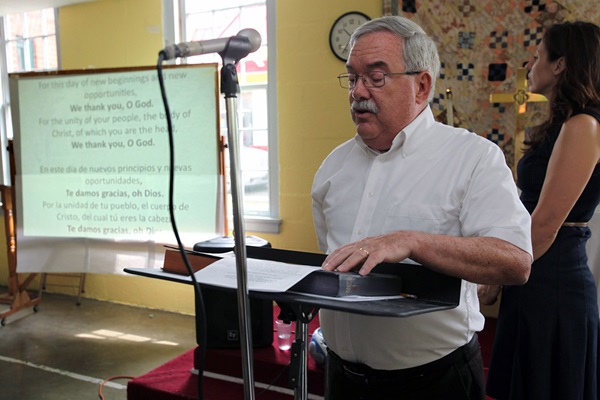Every local church organizes itself to carry out mission and ministry in the community and the world. Laypeople play an important role in leading the congregation to fulfill this work. Laypeople may be called to serve as elected leaders to care for all aspects of the church’s life and ministry, including caring for the congregation and staff, the church’s property and finances, worship, outreach and mission.
Does one have to be a member of the church to hold an office? Are there some positions where one doesn’t need to be a member?
That depends on the office. Some leadership roles do require those who hold them to be professing members. Generally, professing members are required for making decisions about personnel or oversight or direction for the administrative and program ministries of the local church.
The church council envisions, plans, coordinates and implements the administration and ministry of the local church. All voting laypeople of the church council must be professing members of the local church. The pastor, as the administrative officer of the church, is also a member of the church council with vote, although the pastor’s membership is in the annual conference and not in the local congregation.
The lay leader, lay member of annual conference and all members of the committee on nominations and leadership development must be professing members of the local church.
There are three administrative committees that do not have to be composed entirely of professing members.
One is the pastor parish relations committee (the personnel committee), which can also include associate members — members of churches of other denominations who are temporarily away from their home church for an extended time and wish to involve themselves in a local United Methodist congregation while they are away.
The second is the finance committee, specifically some of the officers of that committee who may be hired as staff or paid for their work rather than serving on it in these roles as volunteer members of the local church. The local church may choose to hire rather than elect a church treasurer, a financial secretary, and/or a church business manager. Where these persons are hired (or paid) rather than elected, whether they are professing members of the local church or not, they have voice but not vote in the finance committee. Because this is their primary committee, if they are also on the church council (the treasurer is a mandated member of the church council), they likewise have voice but not vote there.
The third is the board of trustees (property and asset management). The local church trustees may include nonmembers up to one third of their total number. Nonmembers who have expertise in property and asset management can be very helpful for the work of local church trustees. The chairperson of the trustees, elected by the members of the board of trustees, also serves on the church council, and as such, must be a professing member of the local church. By extension, since the vice chairperson is to serve as chair in the chair’s absence, the vice chairperson should be a professing member as well.
What about other committees?
The Book of Discipline does not specify membership requirements for other committees. Each congregation determines the criteria for the leaders and members of additional committees to carry out ministries of nurture, outreach and witness.
As you can see, the answer to whether someone must be a member of the local church to serve in an elected office or committee of the church varies by the body involved. And where professing membership is required, it is because the duties of the office or committee require the commitment to the local church that professing membership involves.
This content was produced by Ask The UMC, a ministry of United Methodist Communications.





